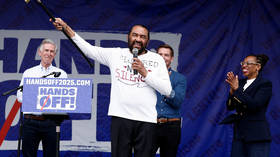Digital class war: Twitter's ad preferences show it was never about being equal

Twitter's two-tiered system in which ordinary users are bought and sold by advertisers while the platform's stars are spared shows social media was never about openness or democracy - it's a digital caste system.
When Twitter debuted, much of the fawning coverage described the platform as a great equalizer where celebrities could interact with their fans, journalists could interact with their readers and politicians could interact with - or be trolled by - their constituents. If the platform happened to show a few ads, well, they had to keep the lights on somehow.
But Twitter admitted on Thursday that it showed more ads to users with fewer followers, while its big names - the celebrities, politicians, and, yes, even journalists who first drew people to the platform - saw fewer or no ads. Like Facebook, which has over the years "leaked" everything from users' private messages to photos on their phones that had never even been uploaded to the platform, Twitter is letting its marquee names know that the honeymoon period is over. They'll not only be drowned in ads, but will also have their personal info pillaged just like the plebeians who swarm their mentions.
Also on rt.com Oops, sorry! Twitter ‘inadvertently’ feeds users’ emails and phone numbers to advertisersAfter a series of very public "mistakes" saw Twitter feed users' location data, device information and finally their emails and phone numbers to advertisers, it's no longer possible to pretend that the platform is a benevolent actor whose purpose is to connect the little guy to the big names.
Social media platforms apologize for these "accidents," but even if they truly are inadvertent, it's clear after years of these "leaks" that a platform's users are an afterthought. Twitter doesn't directly make its money off its users, even the popular ones, but it relies on advertisers' desire to target those users. And, as Twitter's CFO told CNBC on Thursday, those advertisers aren't happy about the company "fixing" its data leaks. If Twitter has to throw its most popular personalities to the advertising wolves in order to keep the cash flowing, it won't hesitate to do so. After all, what are they going to do - join Gab?
Social media companies, for all the breathless gushing about how they transcend class divisions, merely replicate real-life inequalities in the digital realm. Actress Jennifer Aniston amassed 8.6 million followers in a single day when she joined Instagram earlier this month. World leaders, Twitter has admitted, are not subject to the same speech restrictions as ordinary users. Instagram makes much of its "influencers," and YouTube has minted some of its own stars, but for every internet Horatio Alger story, there are millions of users posting away in obscurity. They are sold from one advertiser to another, an eerily detailed profile of their personality and interests gradually emerging on the auction platforms as their thoughts are molded by an echo chamber carefully constructed to keep them online as long as possible.
Also on rt.com But China! Cryptos crater as Congress tries to pin Zuckerberg down on ‘too big to fail’ LibraTwitter isn't even the worst offender in the digital class war. Facebook CEO Mark Zuckerberg was dragged over the coals by Congress earlier this week, forced to answer questions about the platform's "digital redlining" in which ads for housing and jobs were selectively shown to users based on their race or ethnicity.
Facebook gives telecom companies and lenders privileged access to users' data with its Actionable Insights program, which allows them to exclude users with algorithms that purport to be able to divine poor credit histories based on location, interests and homogeneity of friend groups. Facebook's history of turning private data of all kinds over to advertisers is unparalleled.
The decision to show ads to Twitter royalty doesn't signal the end of the internet class system. As the major social media platforms reach a saturation point, the class divisions are merely shifting. Individuals who express unpopular political views, even when they themselves are popular, are considered disposable, a class of shadowbanned "untouchables" whose posts will reach an extremely limited audience. On Instagram, merely being photographed with such people (or symbols that represent them!) can get a post removed. YouTube has created a whole new category of "borderline" content that is prevented from spreading based not on breaking the rules, but on 'almost' breaking them.
Also on rt.com When social media stops being social: How Twitter and Facebook have rendered Americans uncivil, insecure & addictedWith a near-monopoly on online socializing, the major platforms are free to remake the public square in their image. And their image doesn't leave a lot of room for dissent. Social media users often forget that they are the product, not the customer, whenever they log in to Twitter or Facebook, but as the iron fist of speech restrictions tightens around them, they are starting to remember.
By Helen Buyniski, RT
Like this story? Share it with a friend!
The statements, views and opinions expressed in this column are solely those of the author and do not necessarily represent those of RT.














